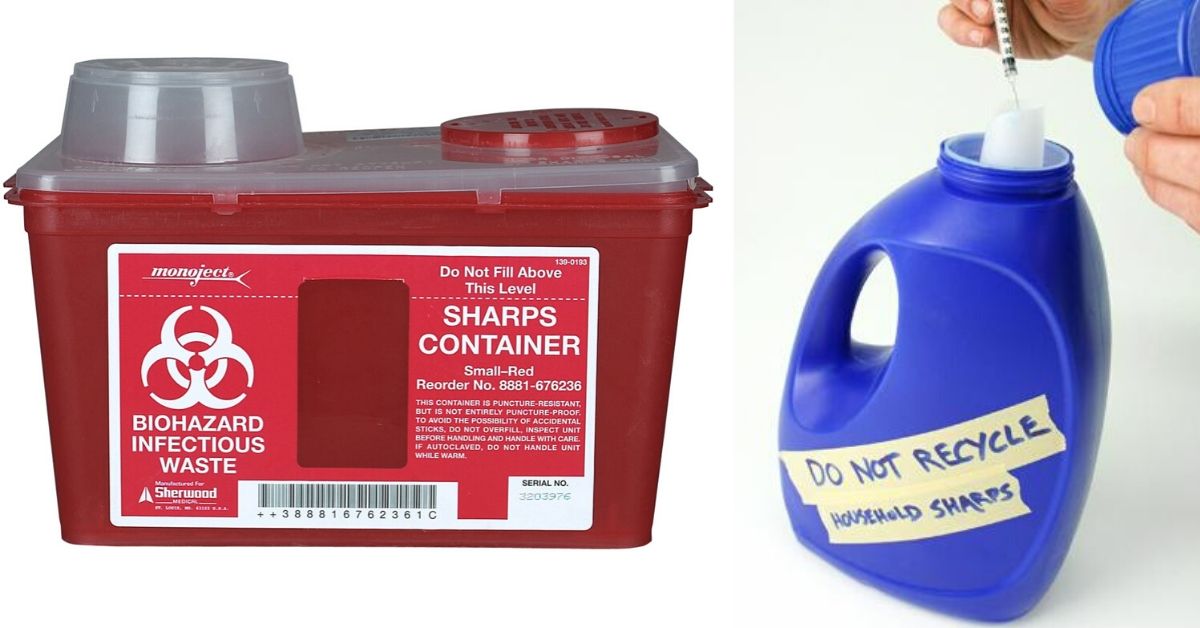Safe Disposal of Diabetes Sharps
Monday, February 07, 2022
|

Billions of needles and lancets are used each year by people who self-inject insulin and check their blood sugars multiple times a day. It’s extremely important to dispose of these sharps properly. Throwing them away with the regular garbage or in recycling bins is very dangerous. Needles, syringes, lancets, CGM applicators, infusion-sets and all other sharps should be placed in a needle disposal container, and treated as hazardous waste. These items should never be thrown loosely into the trash or toilet. Even sharps that retract after use, or are very small, should be disposed of like all other sharps.
When trash is compacted, these items can spill out, and sanitation workers must then pick them up by hand. When people get stuck by a used syringe, needle or lancet, it becomes a serious problem. Up to 850,000 people are injured each year by sharps tossed in regular household trash, according to the Food and Drug Administration (FDA).
Sharps containers are available at a reasonable cost at most pharmacies, many of which allow you to then return them when full. If you don’t want to purchase one, you may use an empty detergent or bleach bottle, as long as it’s made of a strong plastic which cannot be penetrated by the needles. Make sure to clearly mark the container as “Sharps,” “Needles,” or “Hazardous Waste,” so that other are clearly made aware of the contents. When the container is about 75% full, seal it and dispose of it properly. Disposal rules and regulations vary between the states and even municipalities.
Massachusetts is among the states where residents must bring sealed containers of used sharps to a designated drop-off disposal location, or arrange a mail-back service. However, other states allow sharps contained in a strong plastic container to be placed in the regular trash – but never put them in with the recycling.
To find the laws in your area, visit safeneedledisposal.org. That website also offers a zip code search to find disposal locations near you.
